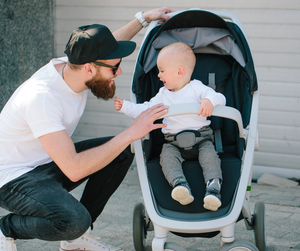How to stop toddler night terrors

Night terrors, also known as night frights, nocturnal panic attacks and pavor nocturnus, affect approximately 5% of all children [1]. Symptoms include a profound state of terror with autonomic arousal – increased body temperature, increased blood pressure – even though the child is still asleep. In fact, they are so deeply asleep they are unresponsive to almost all efforts to wake them. And, usually, they don't remember the episode the next day.
Children who experience night terrors often appear frightened or disoriented upon awakening and may walk around or sit up in bed during episodes of intense fear. Their screams can sometimes be heard blocks away. Night terrors tend to happen during the first few hours of sleep and children usually appear frightened, confused or disoriented following one of these events. They may cry out, thrash around and scream and it can be difficult to comfort them. Typically they will not remember what has occurred when they wake up in the morning.
Parents often experience night terrors as an unnerving and frightening event. It is important to remember that the child has not "woken up" and will probably not be comforted by his or her parents at that time. While hardly a desirable experience for parent or child, night terrors are usually outgrown as the child matures.

The following tips may help families cope with night terrors:
1.) Help your child stick to a regular sleep schedule, going to bed and waking up at about the same time every day. Getting regular exercise during the day can also help promote restful nights. Avoid caffeinated beverages before bedtime. A warm bath an hour or so before bedtime may help relax both parent and child and contribute to a good night's sleep.
2.) Keep your child away from stress, as much as possible. Don't force him or her to do anything that might be frightening or uncomfortable for them, including homework or household chores. Ask other children to wait until he or she is feeling more confident before inviting them over for play dates.
3.) Stress and anxiety can contribute to night terrors in children. If your child seems stressed or anxious, talk with his or her doctor before attempting any sleep training techniques.
Night terrors usually stop by the time a child is 10 years old, but it can be difficult for parents and siblings to watch their young one thrashing around. Make sure you explain to other members of the family what is going on and how they can help your child during a night terror episode.
References
1.) Night Terrors (for Parents) - Nemours KidsHealth




